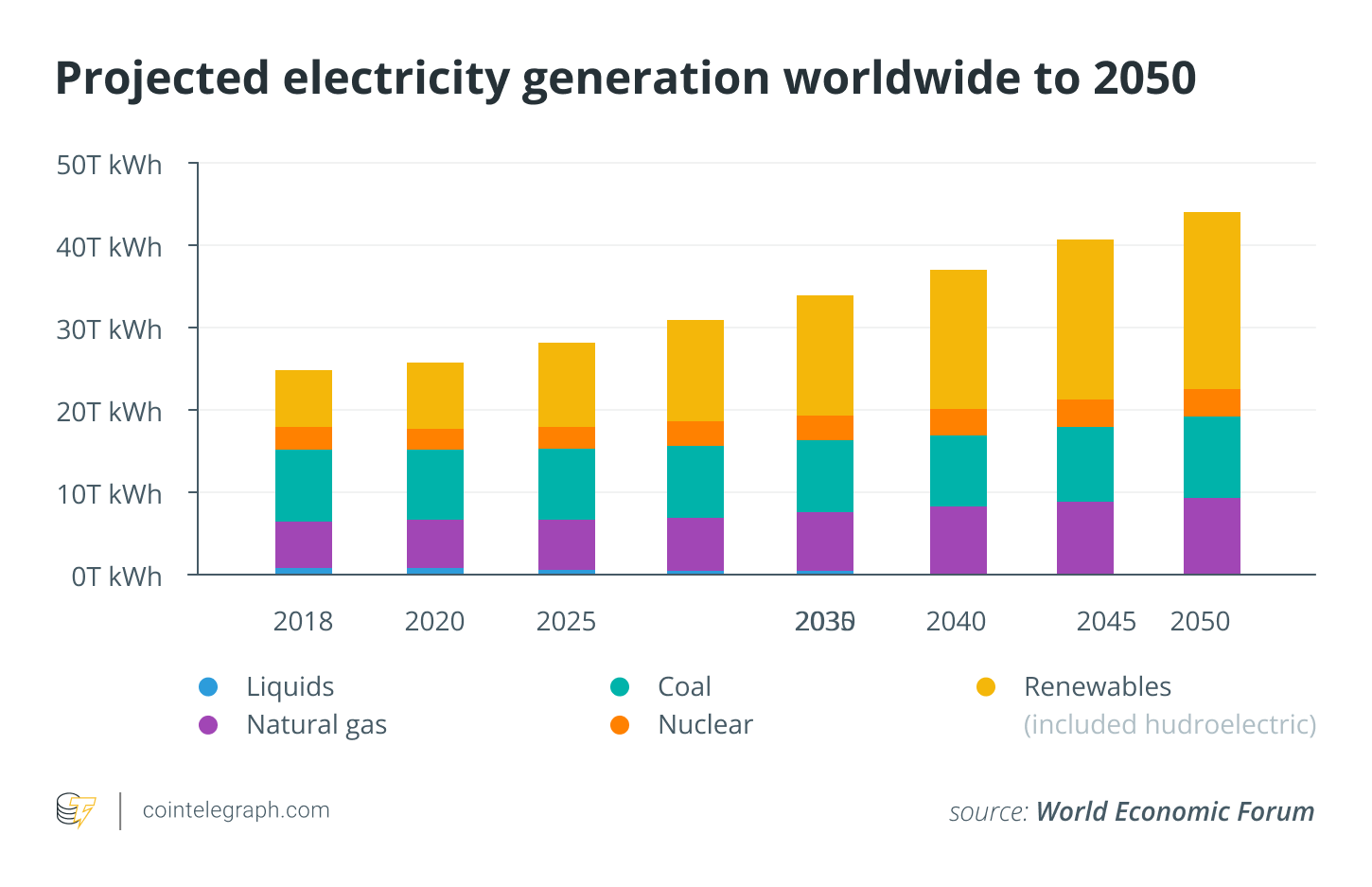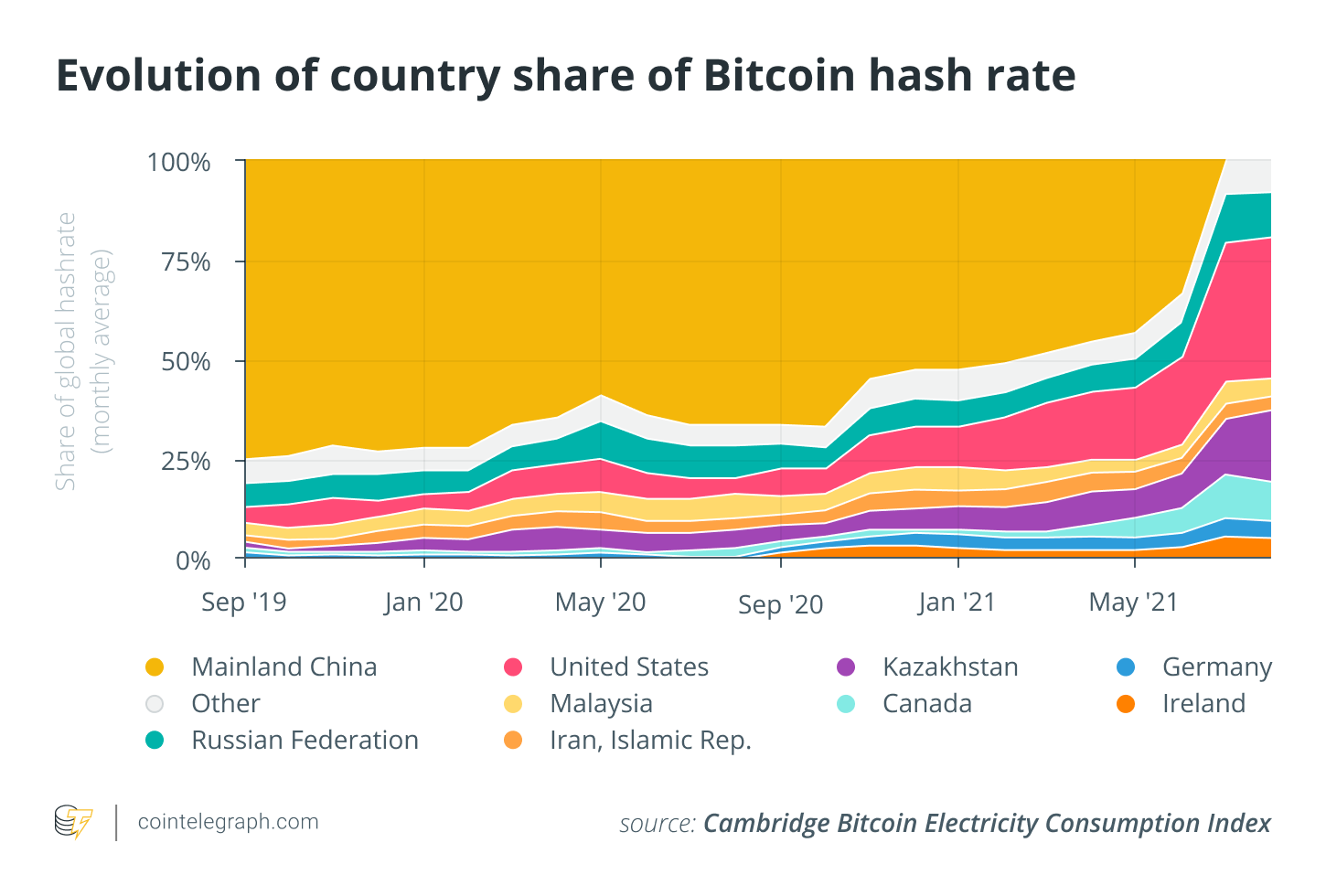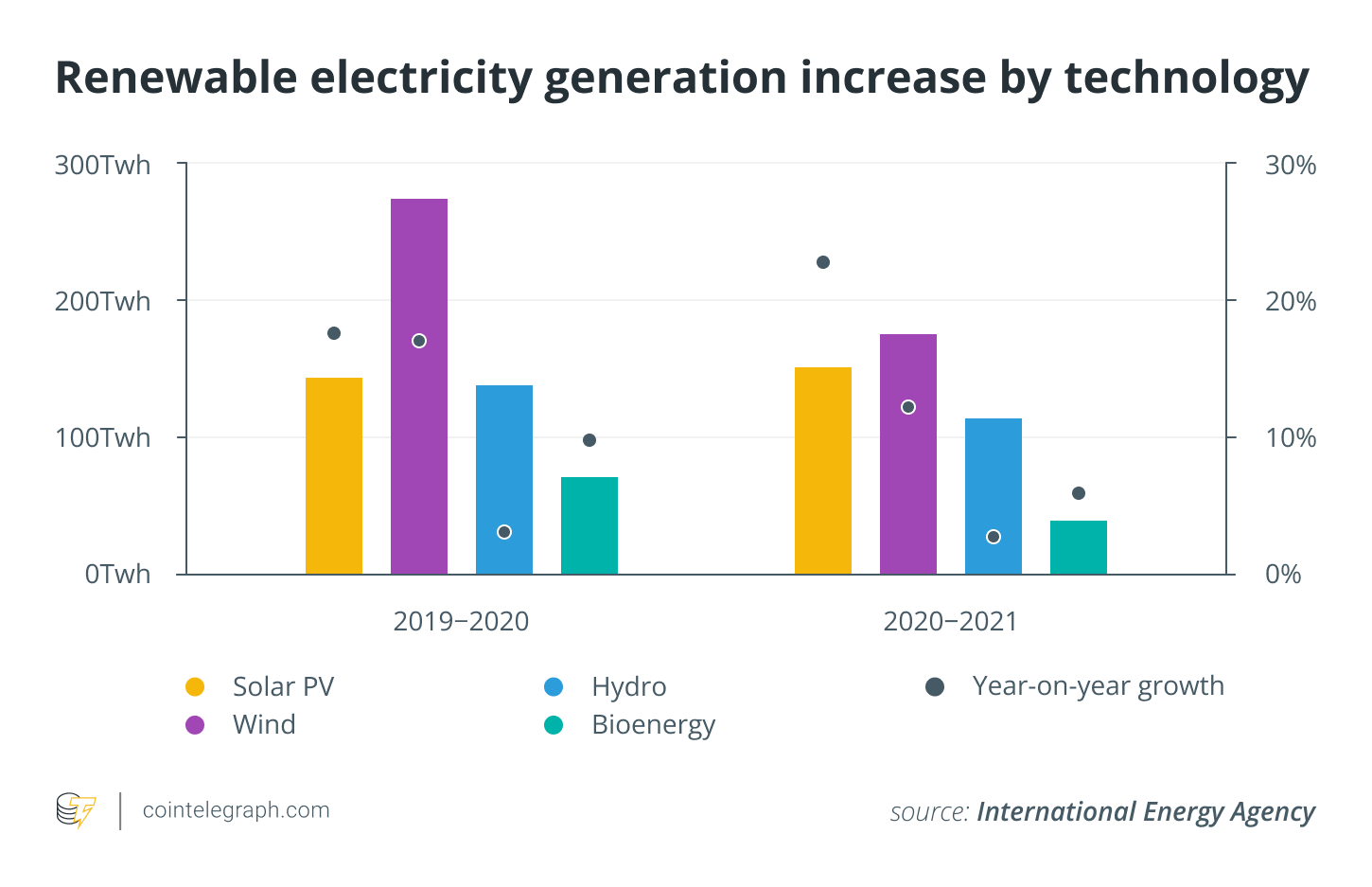Only a matter of time before China banned Bitcoin (BTC) mining as well as other crypto services.
In order to do anything with Bitcoin in the People’s Republic of China, you need to get a special permission.
The Chinese government says it wants to cut down on Bitcoin’s well-known impact on the environment.
Even if this explanation is true, it doesn’t matter. China’s righteous anger at electricity- and carbon-consuming cryptocurrencies mined in the name of the Earth’s climate is only the first shot in a global showdown over Bitcoin and other crypto projects that use proof-of-work (PoW), the complicated crypto security mechanism we call „mining.“
As a whole, this doesn’t look like a fight that cryptocurrency can win or even should win.
For many people who are into cryptocurrency and have Bitcoin, this is a hard thing to think about.
In the end, there is a useful analogy: coal mining. It even has the same name!
It’s time to say goodbye to coal because there are cleaner, more efficient, and more technologically advanced alternatives.
Admittedly, coal isn’t going away without a fight. It’s backed by powerful politicians who are often willing to accept campaign donations.
That doesn’t mean that if your financial adviser told you that you should invest in coal, you’d get a new financial adviser.
For the same reasons, it might be time to let go of the idea that mining, from coal to crypto, might soon be a thing of the past and move on.

Short-term effects of China’s Bitcoin ban
Inertia and a lack of desire to stop mining Bitcoin have at least temporarily slowed down China’s attack on the currency.
It took a while for the United States to get used to the Chinese ban on mining, but after that, they took advantage of the chance.
Kazakstan and Malaysia are increasing mining operations in Asia. Germany and Ireland are also increasing their mining operations, as are Iran and the Middle East, according to recent data from these three countries.
Making sure crypto mining doesn’t slow down is making some very strange geopolitical friends.

Such a colorful and diverse “Bitcoin mining coalition” might give some investors solace, but in truth, it will not stand the test of time. The U.S. cannot match China’s low energy prices, and it cannot hold on to the mining champion title for long. Germany and Ireland are in a similar boat. Iran is currently battling mass protests due to a severe water shortage, so boasting a stake in the world’s least sustainable cryptocurrency is politically undesirable and socially untenable, even for a theocracy. Malaysia is similarly exposed to extreme weather and rising sea levels that would not allow it to sustain its cryptocurrency mining effort in the medium to long term. Taken together, these developments severely limit mined cryptocurrency’s future prospects.
Commitments to climate action push mining to the fringe
Most of the world’s states have signed the Paris Agreement on Climate Change, which is bad news for Bitcoin miners. Most of the world’s most powerful industrial countries have also signed the agreement.
This comes with a promise to cut back on carbon emissions and keep the planet from overheating even more, so this is a deal.
This promise doesn’t make sense if you start mining Bitcoin.
Apart from the Paris Agreement, the European Union has its own plan to deal with climate change. This plan is known as the European Green Deal.
It’s because of these big international agreements that energy-intensive projects like Bitcoin mining are being moved to the outside.
A few states that don’t take their climate goals seriously or don’t make long-term plans are left to mine cryptocurrency.
It’s not a coincidence that many of the countries trying to mine Bitcoin at the last minute are authoritarian countries that are under increasing pressure from both inside and outside their own countries.
It’s hard to put your crypto portfolio on the political stability of a dictatorship or an autocracy that is running out of water and violently suppressing people who don’t like them.
It looks bad, it’s bad for the environment, and it’s bad for business. This is bad for everyone.
In order to be truly democratic and decentralized, a cryptocurrency must not have been pushed to the political and geographic edges of the country or the world.
It doesn’t matter if we don’t think about climate change. How can we use cryptocurrency mined in tyranny to help people get more money in the economy?
People who look at it from a financial, climate, and appearances point of view, the sun is setting on Bitcoin and other cryptocurrencies that have been mined.
Soon, it will happen.
The power of inertia and the pain of letting go
Is the mining train going because it has a lot of power?
As a first step, we should not underestimate the power of inertia and habits that we have learned over time.
When Bitcoin first came out in 2008, it was a big deal.
It opened the door to a new, more digital way of life.
When it came to decentralization and security, proof-of-work was a game changer. But because it was so inefficient, we had a time bomb that was about to go off.
This bomb is going off right now.
It will be hard to let go of mining, but there isn’t an obvious replacement for it right away.
There are a lot of powerful people around the world who have the technology and energy to keep mining cryptocurrency for the foreseeable future. They can also use their political and economic power to keep the status quo for a little while longer.
For as long as it’s profitable, some mining will go underground and slip into the world of organized crime when the government cracks down.
However, if there aren’t legal ways for people to freely exchange and adopt cryptocurrencies, they will fade into the background and their value will be permanently shattered.
A few years from now, the market for mined projects and law enforcement will make mining obsolete.
People who invest in crypto and are excited about it ask: Why wait for that to happen?
Abolishing mining can jumpstart the crypto economy of the future
If we use the resources that have been set aside for Bitcoin mining to work on more advanced and greener crypto projects, we can do a lot more for the digital economy that is still in its early stages.
When the old steam locomotive runs out of coal, we can keep putting it in. We can switch to a bullet train and spend the money to make it go faster and farther.
People may talk about renewable energy and how Bitcoin can use more green energy to cut down on its carbon footprint.
Less than one-third of the world’s electricity comes from renewable sources now.
One way to make this share more sustainable would be to put the whole thing into cryptocurrency mining. This would only be a cover for the real thing.
We would be much better off if we used renewable energy for real, long-term, and smart things.
As far as cryptography is concerned, there are a lot of promising and mathematically sound solutions that could give a network PoW-level security.

Mining is on its way out, and we are making ourselves more vulnerable by putting it off until it is too late.
Lighter, more sustainable, and more scalable solutions will open the crypto space to a lot more people and make it possible for real decentralization and democratization to happen, which is what crypto is all about.
Accepting this truth and making the switch as soon as possible will be good for everyone, both inside and outside of the crypto world.























